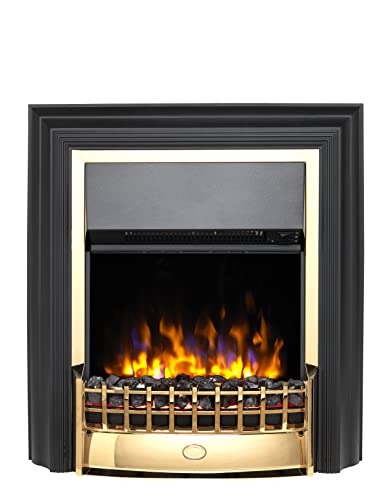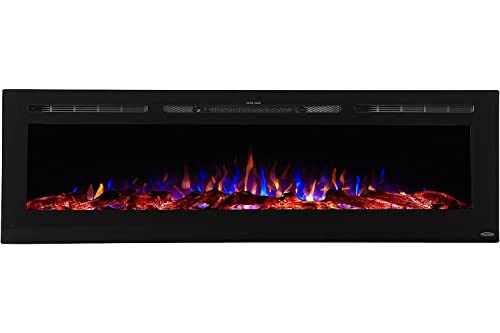10 Quick Tips About Bioethanol Fireplace
페이지 정보
작성자 Alma Bernays 작성일24-12-07 14:57 조회26회 댓글0건관련링크
본문
 The Benefits of an Ethanol Fireplace
The Benefits of an Ethanol FireplaceEthanol fireplaces can be a fantastic alternative to wood or gas fires because they don't need an chimney or flue. They also don't generate any smoke, ash or mess, and they can be easily moved between homes.
It is essential to use bioethanol fuel only on burners that are designed to burn it. Other liquid fuels and gels can void the warranty on your burner.
Cost
The cost of a bioethanol fireplace is in accordance with the model and type you choose. There are models that range from a few hundred to several thousand dollars, however they're typically less expensive than a traditional wood or gas fireplace. Some are designed to be freestanding, whereas others can be recessed into the wall or connected to the chimney. Ethanol fireplaces are also less environmentally harmful than wood-burning ones.
Bioethanol fires are popular because they offer a beautiful, natural flame without any smoke or soot. They are suitable for almost any room, and they are easy to maintain. However, you should only use bioethanol fuel that is specifically made to be used in these fireplaces. Other types of fuel could harm the burner and increase the risk of fire. Also, avoid storing flammable substances near the bioethanol flame.
ethanol fireplaces (Http://123.249.20.25) are great for heating rooms, but they should not be relied on as your primary source of heat. They are more efficient than wood-burning fire places and produce lots of heat, approximately 2kW on average. It's not enough to heat a whole house, but it can certainly warm the smaller space.
It is also necessary to factor in the cost of maintaining an ethanol fireplace. The fireplace must be stored in a safe place, out of the reach of pets and children. You should always adhere to the manufacturer's directions for adding fuel, putting the flame out and allowing the fire to cool.
A fireplace suites made of ethanol is an excellent alternative to traditional wood-burning stoves or an electric fire. This fire has the main advantage that it doesn't require chimneys. You can save money by not having to build and maintain one. It is also more secure than other types of fireplaces. However, it's an excellent idea to consult with a professional prior to making a final decision. You can be certain that the fireplace has been installed safely and correctly.
Environmental impact
An ethanol fireplace can be an eco-friendly alternative to traditional wood-burning fireplaces. Bioethanol fuel is made from waste plant products like straw, corn, and maize. The biofuel liquid undergoes further distillation to let it burn cleanly and efficiently. This kind of fuel is thought to be renewable energy source that produces no unpleasant odours or harmful emissions. It is also free from soot and smoke. This makes it a safer option for your home.
They can be installed in any room of your home because they do not need venting or chimneys. The majority of models come with a remote control. Many models have an integrated cooling system to stop the fuel from becoming too hot. They can be used as a main heat source or as an additional heating source. They are also a great option for those who live in condos or apartments.
Bio-ethanol fireplaces emit very low levels of odours, which makes them a great choice for homes that have people who suffer from asthma or allergies. In fact, this type of fireplace can be installed in a nursery for babies or in a child's bedroom. These fireplaces must be kept away from flammable items such as curtains or furniture.
One of the greatest benefits of an ethanol fireplace is its simple use. It is simpler to install than a fireplace that burns wood and doesn't require complex electrical connections or installations. Additionally, the fuel in liquid form can be stored in a tank that is portable so that it can be easily moved from room to room. This allows you to take pleasure in the warmth of a fireplace without having deal with the mess of stacking, chopping and cleaning wood.
Another advantage of a bioethanol fireplace is that it generates minimal pollution and is a great alternative for those who are concerned about the environment. They also aid in saving energy and money.
Safety
A bioethanol fireplace is an alternative to open flame. They are easy to operate, produce less smoke and burn cleaner than other alternatives. However, as with all fireplaces and other appliances that produce fire they could be dangerous if not used correctly. These fireplaces need special care, so make sure you read and follow the instructions.
When using a bio-ethanol fireplace make sure it's in a room that is well-ventilated and at a distance from other combustible materials. Also ensure that pets and children are kept away from the fireplace. Don't attempt to move it while it's burning, since this could result in an accident.
Bioethanol fireplaces aren't quite as dangerous as gas or wood fireplaces, however there are certain safety guidelines to follow to ensure a safe operation. Keep flammable objects at least 1500mm from the burner and avoid touching it while the flame burns. It is also essential to not use fuel that is not approved.
The bio-ethanol fireplace's burning process is safe, so you follow the directions. The fuel is pumped through the vapour-accelerator where it vaporizes, and then ignited with a filament. This method of combustion makes sure that the fuel is completely burned, eliminating odours and harmful substances like dioxins or furans.
It is crucial to follow the instructions given by the manufacturer when installing or operating an ethanol fireplace. Additionally they should be kept away from combustible materials such as curtains and newspapers. They should be kept at a safe distance from other appliances in the home, and not used near sleeping animals or children.
A bioethanol fireplace has the primary benefit that it doesn't release any harmful odours or fumes. This makes it a safer choice for households with pets or children. They are also more convenient to use than traditional fireplaces because they do not require a chimney and they don't cause carbon monoxide poisoning. They offer a range of advantages, such as the ability to install them wherever you want and move them around.
Installation
A bioethanol fireplace can add warmth and ambiance to a room. They come in a variety of styles and can be installed in a number of ways. They can be wall-mounted, built-in or freestanding, or even see-through. It is recommended to review the installation instructions for a fireplace electric prior to installing it. This will allow you to avoid any problems during installation and ensure that your fireplace is safe to use.
Installing a bioethanol fireplace is fairly simple. It involves putting in the burner and then building an enclosure into the wall. The frame should be constructed of an inert material that is not flammable. This will prevent the flame from igniting your wall. This also helps to prevent the flame from spreading to other parts of the room. The frame must be attached to the wall using suitable screws and dowels.
In contrast to other kinds of fireplaces, ethanol fires do not require a chimney nor a flue. This makes them a cost-effective choice for homeowners. Additionally they can be utilized in any room of the house and can be easily moved from one place to another. Furthermore, they don't generate any harmful emissions.
When properly used, bioethanol fireplaces are very safe. But as with all fires, they should be kept away from any surfaces that could ignite and children. The fuel should also be stored in a secure area and the fire should be put out before refueling.
Ethanol fireplaces do NOT produce soot or ash and are easy to clean. They are a great choice for those who are concerned about the environmental impact of traditional wood-burning fireplaces. Ethanol-fueled fireplaces can be a fantastic alternative to electric or gas fireplaces.
Although bioethanol fireplaces can be a wonderful addition to any home however, they shouldn't be used as a primary source of heat. They are designed to provide warmth and create a cozy atmosphere however, they are not strong enough for heating an entire home. Employing a professional to set up your bioethanol fireplace is the best way to go.

댓글목록
등록된 댓글이 없습니다.
